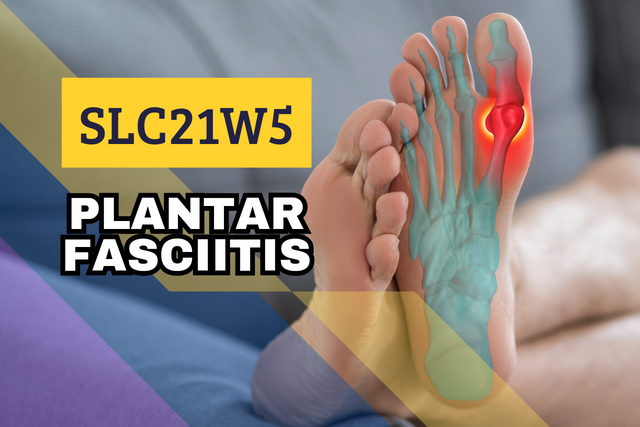 |
|---|
🤷♂️ What is Plantar Fasciitis?
Plantar Fasciitis is like a string on an arrow where the bowstring is inflamed or irritated due to overuse or overuse, the bowstring is in our body which is positioned along the sole of the foot so it is called Plantar Fasciitis, its function is to connect the heel bone with the toes.
The cause of someone experiencing Plantar Fasciitis is due to too long in a standing position or due to the impact of running, lifting heavy weights, the influence of age, obesity, overweight, and due to other diseases such as arthritis problems and diabetes mellitus.
Symptoms of Plantar Fasciitis can include heel pain, pain in the sole of the foot, swelling and difficulty walking due to inflammation of the sole of the foot.
In general, there are two types of plantar fasciitis, namely acute plantar fasciitis, the duration of pain is not too long and sudden inflammation is often felt for less than one month, chronic plantar fasciitis pain will be felt continuously for more than one month and accompanied by inflammation.
🙅♂️ How is plantar fasciitis diagnosed? Are there any clinical investigations or assessment tests?
Usually the doctor will ask patients who experience plantar fasciitis about the symptoms they experience such as pain in the heel and on the sole of the foot, the doctor will also ask when the pain occurs whether after carrying out an activity or after waking up. In addition, the doctor will also perform a physical test examination by palpating the painful area, checking the flexibility of the foot, and evaluating the patient's gait. If the test results show any abnormalities, the doctor will suspect that the patient has symptoms of plantar fasciitis.
The doctor may also conduct clinical investigations in several ways such as:
X-ray test, to confirm because the cause of pain may not be plantar fasciitis but a fracture or other factors.
MRI test, to get more detailed images of any soft tissues in the foot.
Ultrasound, to check blood flow and check for fluid around the plantar fasciitis area.
Windlass test, to check if there are any problems with the foot tissue, this test is to test the arch of the foot.
🙋♂️ Try to practice at least 3 exercises that you have learned from the lesson.
Rolling frozen bottle exercise
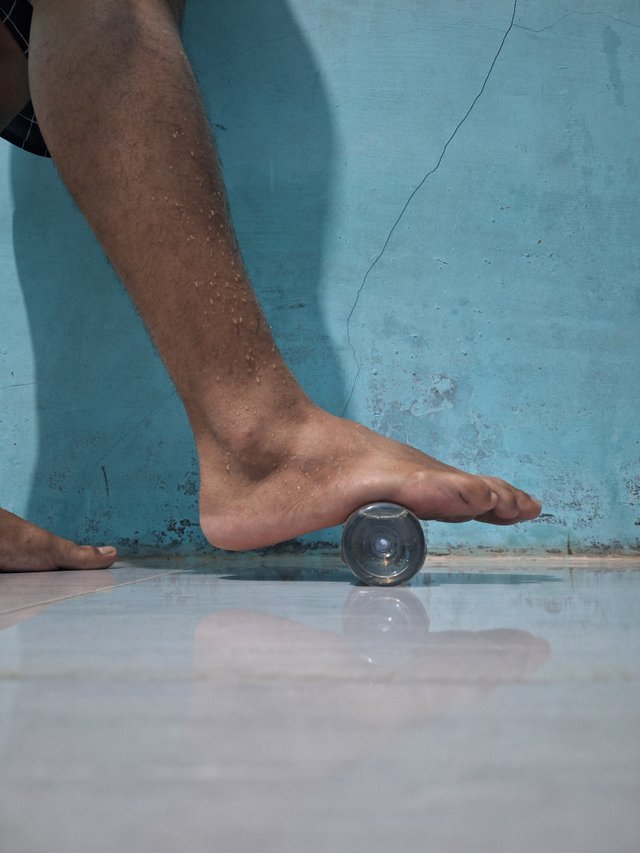 | 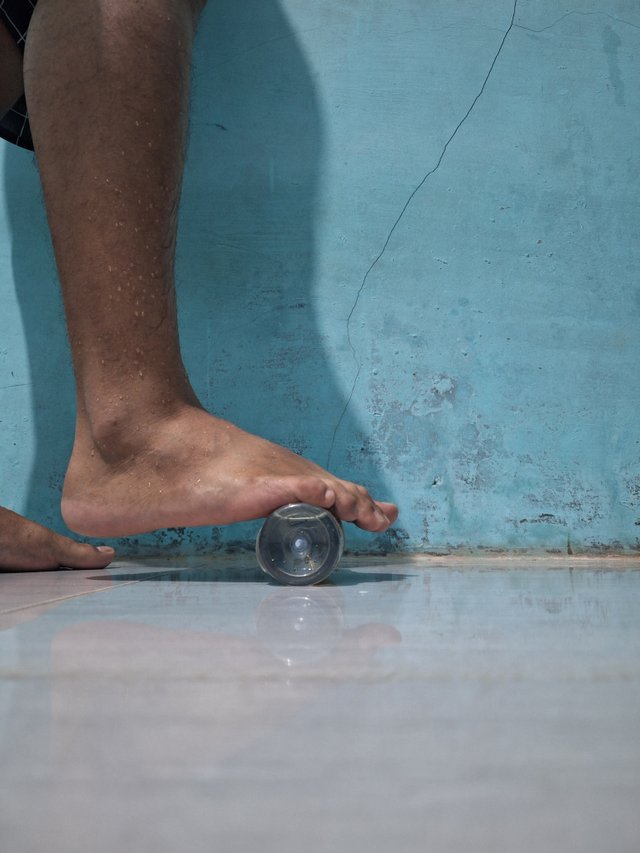 | 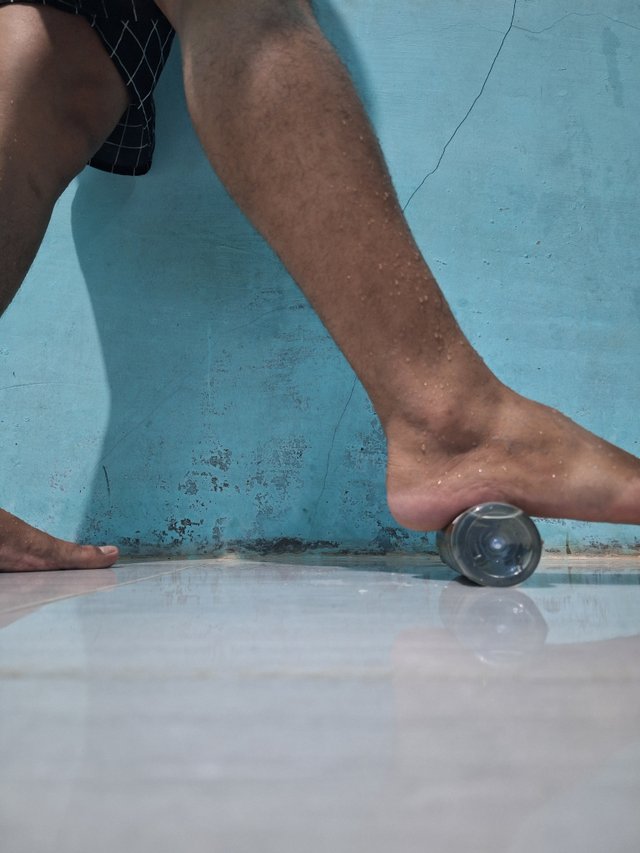 |
|---|
I use a bottle filled with cold water to give the soles of my feet a cold and relaxing sensation.
Heel lift exercise
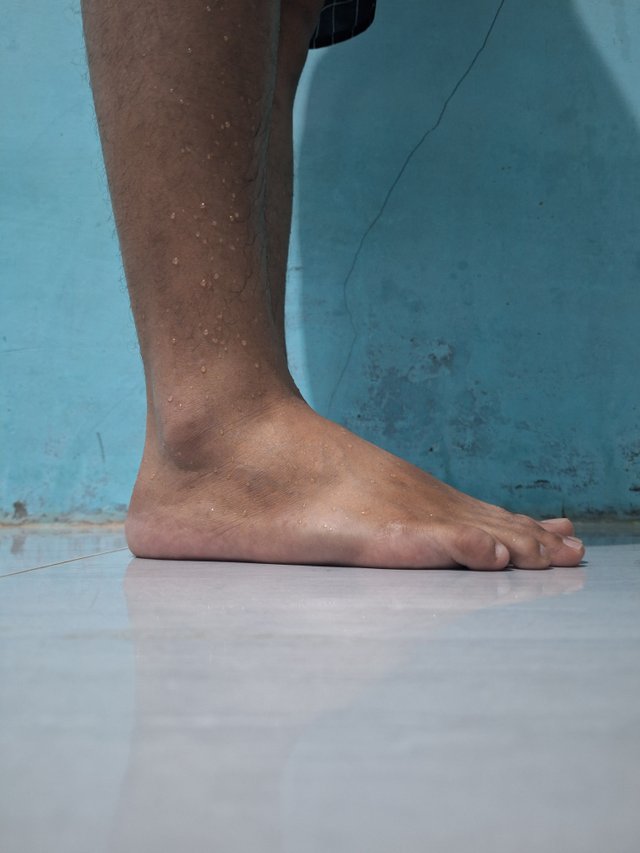 | 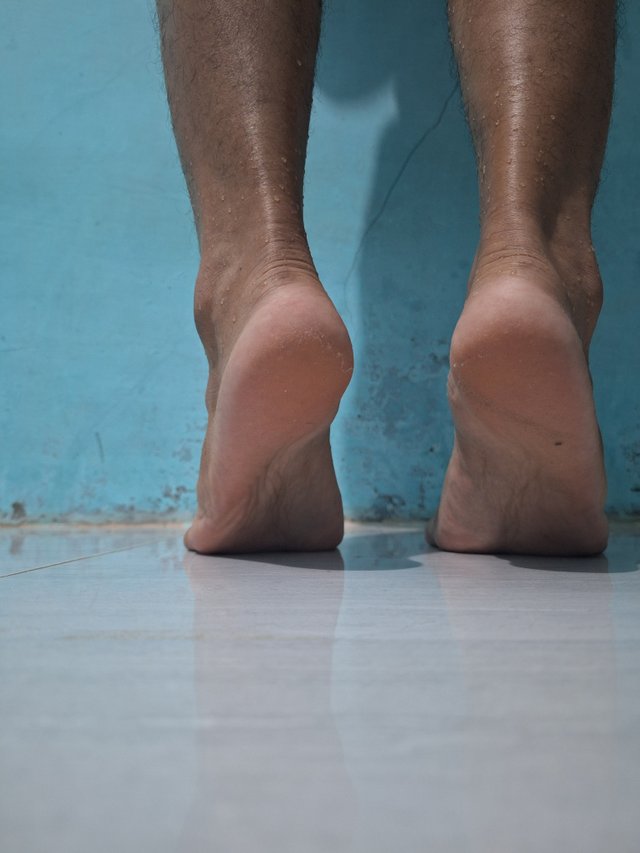 | 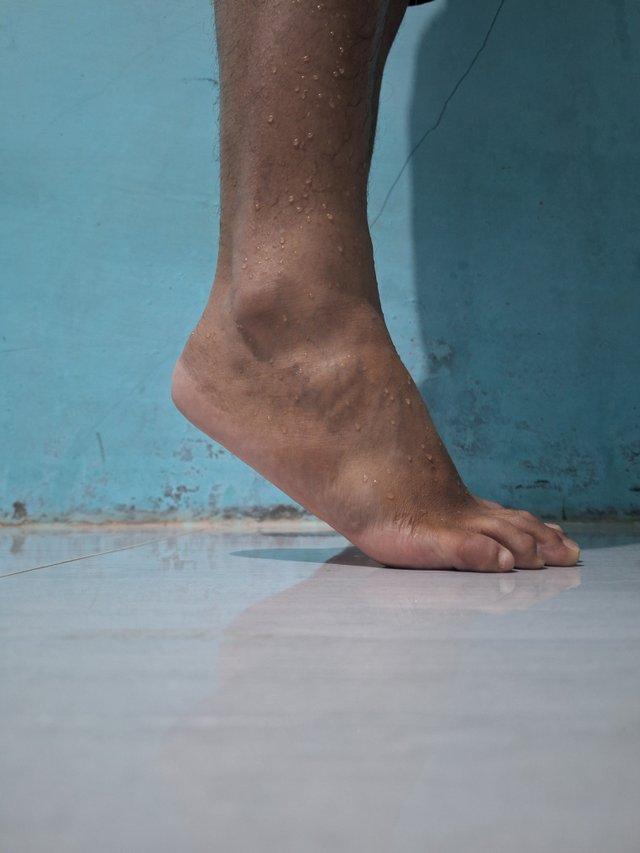 |
|---|
I hold on to a wall and then start to lift my heels and hold for 5 seconds, I keep repeating this several times.
Toe bend exercise
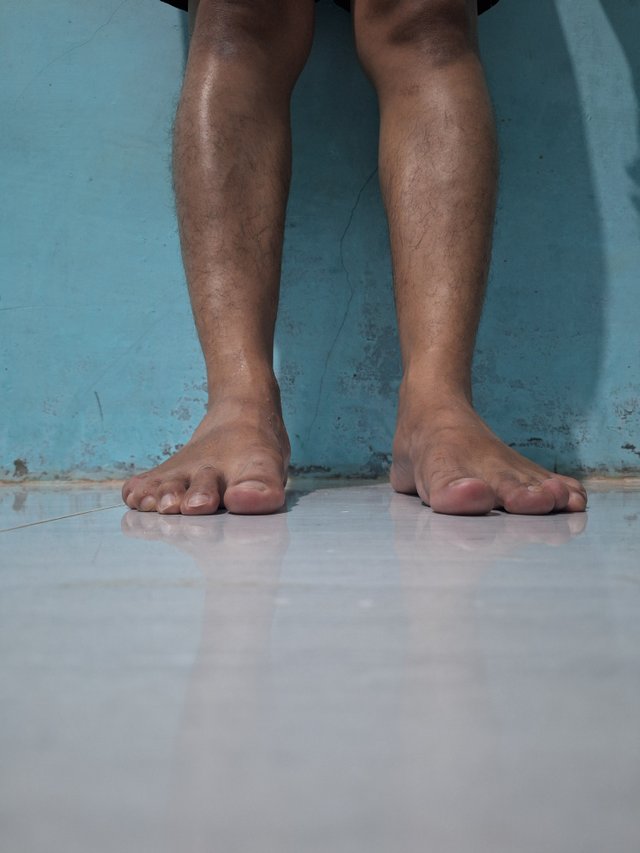 | 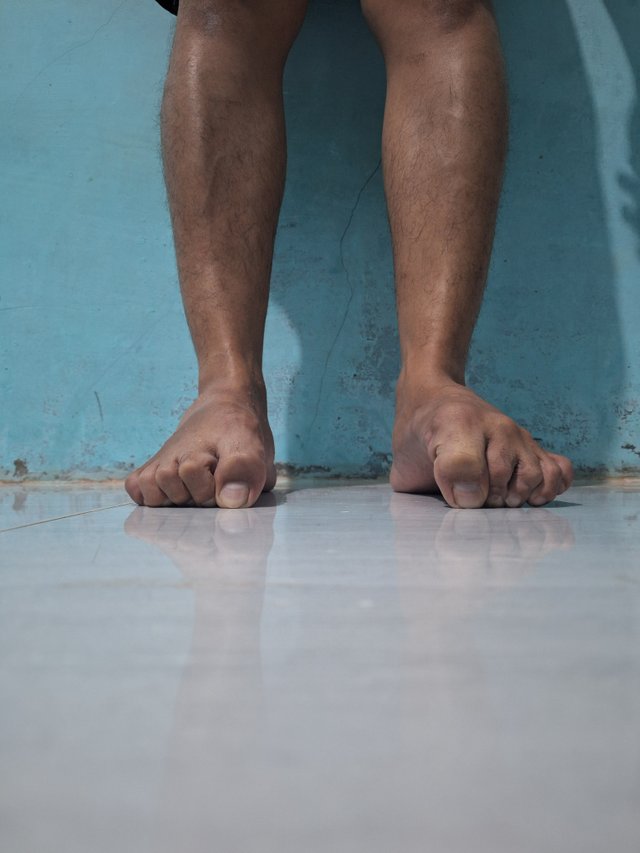 | 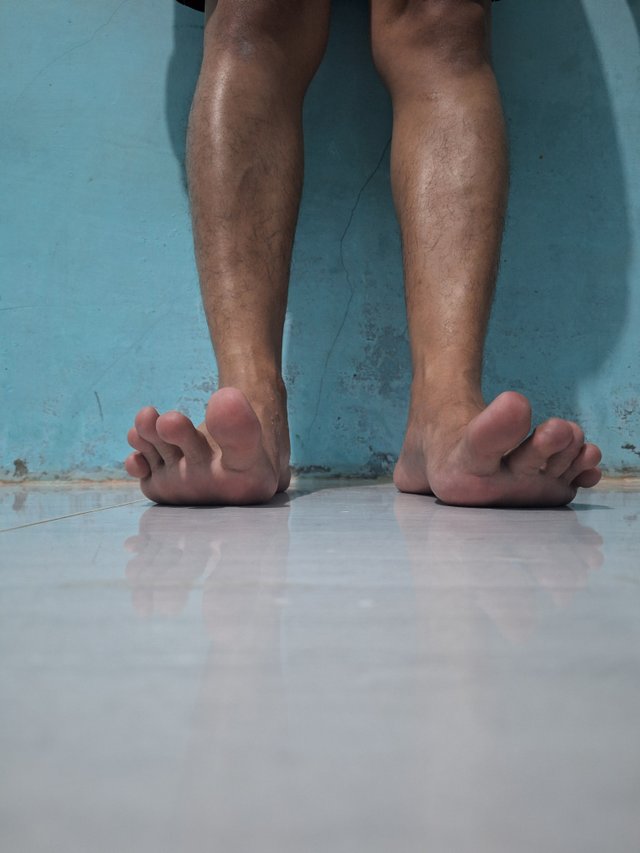 |
|---|
The toes are bent inward and held for 10 seconds while breathing calmly, then the foot is bent upward for 10 seconds.
Calf stretch exercise
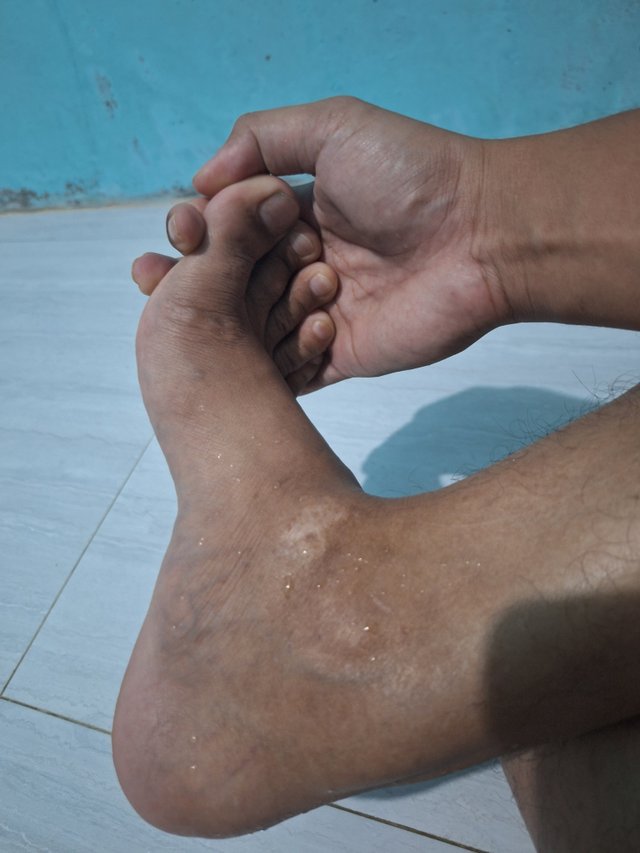 | 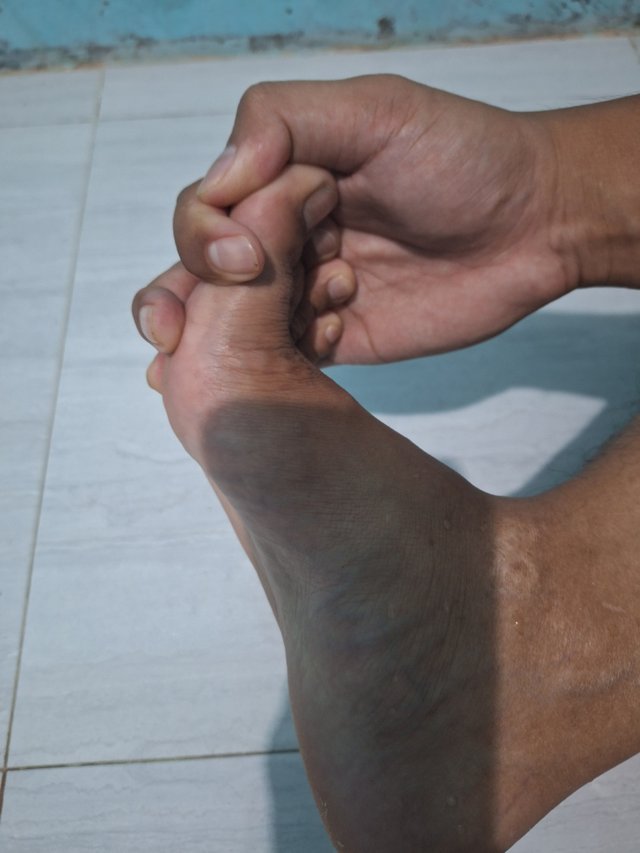 |
|---|
I supported my feet using my thighs and pulled the soles of my feet and toes using one hand.
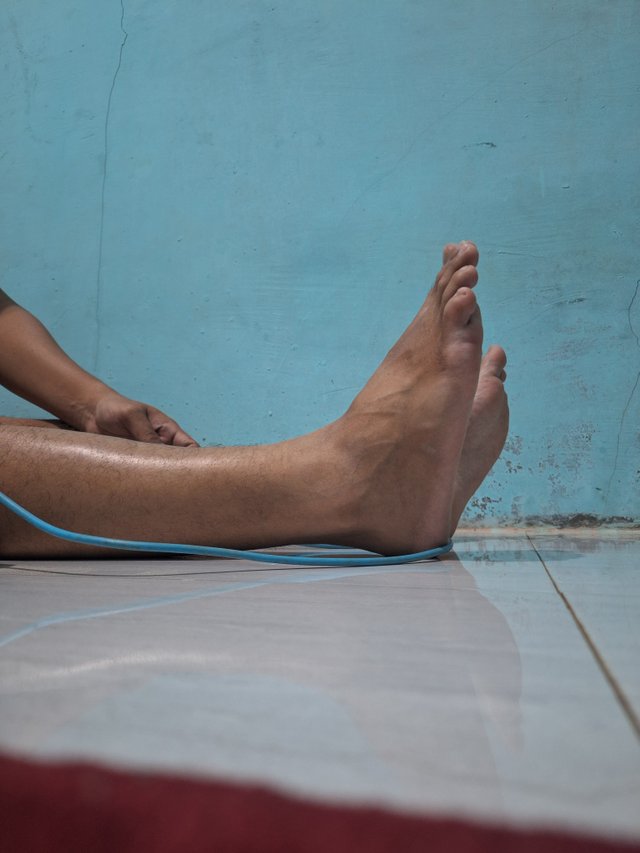 | 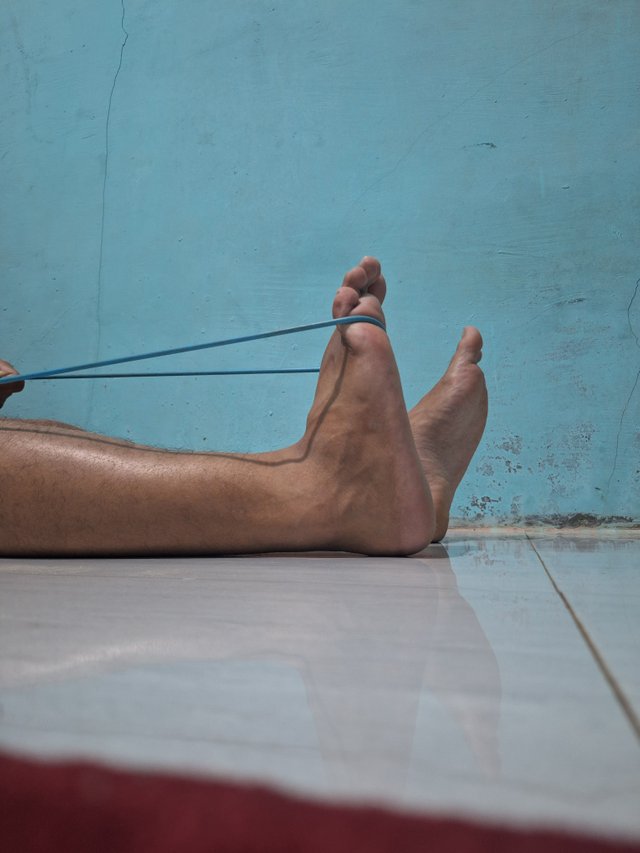 |
|---|
I use a rubber band to pull the sole of the foot, then pull the ball of the foot using this rubber.
💁♂️ Share your reviews after performing these exercises either on yourself, healthy individuals, or patients.
After doing some of the exercises suggested in this course I can feel that there are two exercises that have the most impact on the soles of the feet and calves.
Firstly, the rotating frozen ball exercise provides a comfortable and cold sensation on the soles of the feet that makes the feet feel more relaxed, after doing this exercise I felt that my feet felt lighter. Maybe I will try it again next time if I feel pain on the soles of the feet.
Second, the heel lift exercise is the most strenuous of all exercises, lifting the heel for 5 seconds or 10 seconds can give pain to the calf. After doing this exercise for 10 times the calf feels like it has a strong pull and gives a little pain.

Thus this article, I hope it is useful and inspires all who read it.I also invite you to participate in this contest. @fadia @fantvwiki @f2i5
Thank you for reading this post, don't forget to comment.
Thank you for understanding the lesson and sharing your assignment; I hope that you will enjoy this week's lesson and try to implement it in your life if you see any such case.
Observations
Task 1 (3/3)
You have shared a great knowledge about plantar fasciitis, it's symptoms, causes, and types. I appreciate your effort.
Task 2 (2.8/3)
In the second question, you tell us about how you have to assess a patient by doing physical examination and history taking, performing investigations and specialized tests. A bit more depth require to complete the answer about special tests. Great.
Task 3 (3.8/4)
You try the toe curls, calf stretch, ball rolling and heel raise. You did the heel raise and ball rolling correctly. But in toe curls try to curl all the toes, one toe curls was better than other. Also try a band in bit more width for stretch. Always remember to cold therapy & rest is the best therapy in the treatment of plantar fasciitis. I appreciate your efforts.
Overall you made a great attempt to answer all the questions. I appreciate your efforts. But next time try to avoid the above written suggestions. Keep learning and try to implement your knowledge to the people suffering from plantar fasciitis or any type of heel pain. Thank you.
Downvoting a post can decrease pending rewards and make it less visible. Common reasons:
Submit